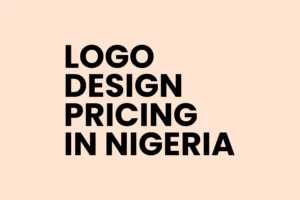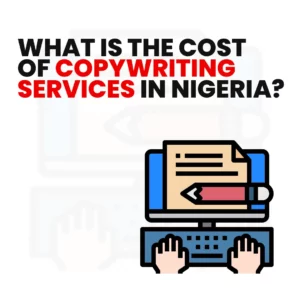In this article, we’ll look at how solar panel price in Nigeria have changed over time, how much they cost now, and the industry’s problems. By the end of this article, you’ll know more about how solar panels are used in Nigeria and why supporting renewable energy is important.
If you’re reading this, you’re curious about how much solar panels cost in Nigeria. But what are solar panels, and why do we need them? Solar panels are gadgets that turn light from the sun into electricity. This means that they help us use clean, renewable energy, which is important for the future of our planet. In Nigeria, there is a growing interest in using solar panels to make electricity, especially in rural areas where access to traditional electricity is limited.
In Nigeria, solar panels cost between ₦9,000 to ₦200,000 for power capacity ranging from 20W to 200W.
Need a web designer in Nigeria? You are at the right place! Click the menu above to get started.
Nigerian Solar Panels Prices in the Past
Have you ever wondered how much solar panels used to cost in Nigeria and how those prices have changed over time? Well, you’re in luck because this is exactly what we will discuss in this article section!
In the early days of solar panels, they were very expensive, which made it hard for people in Nigeria to buy them and put them up. But as the technology improved and more people used it, prices started to go down. This made it easier for more people to use solar energy and get its benefits.
The cost of the parts used to make solar panels is one of the main things that has changed the price of solar panels in Nigeria. For instance, if the price of silicone, a key part of solar panels, goes up, the price of solar panels will also go up.
Demand is another thing that has affected the price of solar panels. As more people want to use solar energy, there is more demand for solar panels, which can increase prices.
It’s also important to know that the government has affected the prices of solar panels. For example, if the government gives tax credits to people who use solar energy, this can make solar panels cheaper and easier to get.
Current Solar Panel Price in Nigeria
So, now that we’ve discussed how the price of solar panels in Nigeria has changed over time, let’s look at what they cost now. The price of solar panels in Nigeria depends on the type and size of the panel. For example, a small solar panel for a single house might cost around ₦9,000, while a large solar panel system for a business might cost over ₦200,000.
It’s also important to remember that the cost of installation can change how much a solar panel system costs overall. Installation costs can include the cost of hiring people to put up the panels and the cost of any needed tools. The price of a solar panel is also affected by the voltage and power output. In addition to wattage, the price also differs from manufacturer to manufacturer.
The prices of solar panels with power capacities from 20 to 320 Watts are shown in the table below.
| Power Output/Wattage | Price Range |
| 20W | ₦9,000 – ₦20,000 |
| 30W | ₦12,000 – ₦25,000 |
| 50W | ₦15,000 – ₦35,000 |
| 60W | ₦25,000 – ₦40,000 |
| 80W | ₦18,000 – ₦45,000 |
| 100W | ₦38,500 – ₦110,000 |
| 150W | ₦45,000 – ₦135,000 |
| 200W | ₦60,000 – ₦150,000 |
| 250W | ₦65,000 – ₦180,000 |
| 300W | ₦75,000 – ₦190,000 |
| 320W | ₦90,000 – ₦200,000 |
The cost of parts, the exchange rate of the currency, and the amount of competition on the market can all affect how much solar panels cost in Nigeria right now.
Overall, solar panels are still a significant investment, but as technology improves and prices decrease, they become more affordable.
Using clean, renewable energy like solar panels can save money on your electricity bill and help protect the environment.
Read Also: How Much Does Web Design Cost in Nigeria
Solar Panel Installation Options That Save Money
So you want to use solar panels but are worried about how much they will cost? Don’t worry; there are several ways to save money when installing solar panels!
Instead of buying solar panels outright, consider renting them. This means you pay a monthly fee to use the panels, which can be a good option if you have a little money upfront.
Taking advantage of government incentives for using solar energy is another option. For example, in Nigeria, people who use solar energy may be able to get tax credits or rebates. This can bring down the total cost of putting up solar panels.
Lastly, consider joining a group that installs solar panels for the whole neighbourhood. This means that a group of people work together to install a more extensive solar panel system, which can be cheaper. By working together, you can save money and use solar panels’ energy for everyone’s benefit.
Problems Facing Nigeria’s Solar Panel Industry
Even though there are many benefits to using solar panels, the industry in Nigeria faces several problems. Let’s look at some of the most critical problems and what is being done to solve them.
Getting money is one of the biggest problems. The initial cost of installing solar panels is too high for many people. This makes it harder for people to use this clean and renewable energy source. Some organizations are working to make it easier for people to install solar panels by offering ways to pay for them, such as loans or leases.
The lack of infrastructure and support is another problem. This is because there aren’t enough trained professionals to put up the panels, and there aren’t enough power grids to support the panels’ energy. To fix this, some groups are giving training, and others are helping to build the infrastructure that will help the solar panel industry in Nigeria grow.
Lastly, there are problems with how reliable the energy generated by the panels is. For example, the panels’ energy can drop significantly when it’s cloudy or raining. To fix this, some groups are working to create new technology to help make solar panel systems more reliable and efficient.

In conclusion, solar panels are a great way to get clean, renewable energy. They have gotten cheaper over time, and you can save money by leasing, taking advantage of government incentives, or installing them in a community setting. But the industry also faces problems, such as getting access to financing, insufficient infrastructure, and ensuring the energy generated by the panels is reliable.
Overall, it’s exciting to see how the solar panel industry in Nigeria is growing and has a lot of potential. We can help protect the environment and become less dependent on fossil fuels by using solar energy. Whether you own a home, run a business, or are a student, you can help this industry grow and promote clean and renewable energy for everyone.




